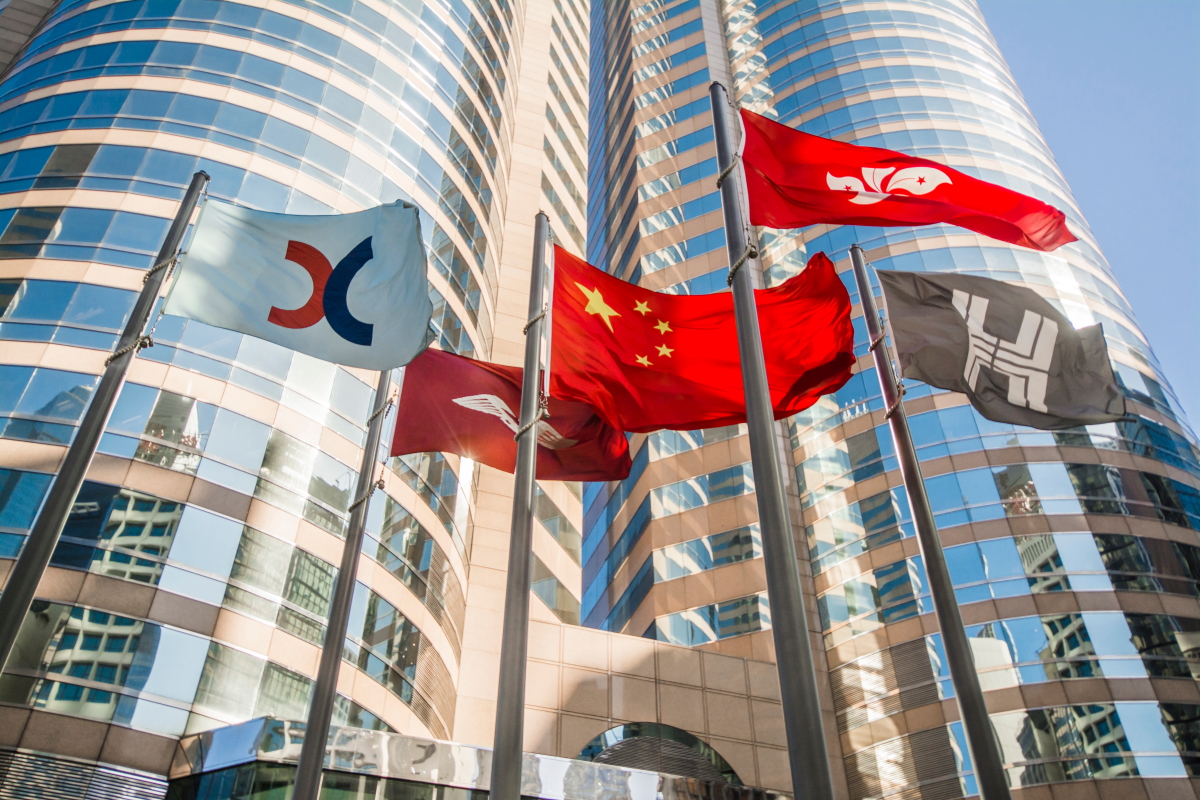A selloff in equities has accelerated this week in China, notably in popular tech stocks like Alibaba Group and Tencent, as investment appetite was dampened by geopolitical risks and a subdued growth outlook for China. Stocks in China have plunged to 21-month lows on Tuesday, while Hong Kong’s benchmark Hang Seng China Enterprises Index fell to lows not seen since the 2008 financial crisis. The Hang Seng Tech Index has declined about 70% since its peak in February 2021, wiping out over $2.1 tn from China’s tech stocks.
Meanwhile, the Nasdaq Golden Dragon China Index, which measures Chinese companies traded on Wall Street, has dropped more than 10% for two days, bringing its year-to-date losses to 34%. This was after a decline of 43% last year.
JPMorgan Chase & Co downgraded 28 Chinese tech stocks like Alibaba, Tencent Holdings, and Meituan to “underweight”, calling them “uninvestable”. The report added the historical drop has driven the MSCI China Index’s valuation to a record low against its global peers.
According to the investment banking firm, “risk management has become the most important consideration for global investors in relation to their China internet investment strategy.”
The report found China’s tech stocks unattractive on a six to twelve-month view with an unpredictable share price outlook “depending on the market perception of China’s geopolitical risks, macro recovery and internet regulation risk.”
Economic uncertainties alarm investors
The bearish sentiment stems from investors’ concerns about Beijing’s recent Covid outbreak and renewed restrictions. Authorities have announced a lockdown in the tech hub of Shenzhen, which is home to the headquarters of tech giants like Tencent Holdings, Huawei Technologies and Foxconn, after China reported the highest virus surge in two years.
China’s zero-Covid strategy along with fresh lockdowns have dimmed the growth outlook for the world’s second-largest economy that is aiming for 5.5% expansion in 2022. Across China, about 30 million people are under lockdown, with at least 13 cities completely shut down.
Ben Sheehan, Senior Investment Specialist, Equities, at abrdn said, “The news that major economic centres such as Shanghai and Shenzhen are now affected by the Covid-19 lockdowns is very worrying. Especially when you consider that Guangdong province, to which Shenzhen belongs, generates 10-12% of China’s GDP, and Shanghai about 4%.”
In the meanwhile, Tommy Wu, Lead China Economist at Oxford Economics said, “China’s economic outlook will continue to be dampened by the Russia-Ukraine war through slower global trade and the surge in energy and commodity prices.”
Geopolitical risks add to worries
Geopolitical risks because of widening differences between Beijing and Washington have also dampened investment mood for Chinese stocks. Following Russia’s invasion of Ukraine, concerns have grown about China’s strong connection with Moscow. The US has warned China against providing military or monetary support to Moscow, warning that failure to do so might result in a global backlash against Chinese enterprises, including sanctions.
Post the development, China’s Foreign Minister Wang Yi said, “China is not a party to the crisis, nor does it want the sanctions to affect China.”
“Due to rising geopolitical and macro risks, we believe a large number of global investors are in the process of reducing exposure to the China internet sector, leading to significant fund outflows,” JPMorgan analysts said in the report.
Regulatory risks hurting China tech stocks
Panic selling was recorded in Chinese companies with dual listings in the United States and Hong Kong, amid renewed regulatory risks. Tech stocks were also hit hard by delisting worries last week, following the announcement by the US Securities and Exchange Commission (SEC) that five Chinese companies may be excluded from trading on US exchanges if they do not provide access to audit documents. These include fast-food chain Yum China, technology firm ACM Research and biotechnology companies BeiGene, HutchMed and Zai Lab.
Last December, the SEC revealed its plan to adopt a new regulation requiring foreign firms to disclose their books to US scrutiny or face being removed off the New York Stock Exchange and Nasdaq within three years. The long-running dispute between the two countries over audit standards could result in the delisting of around 200 Chinese companies from the US exchanges, including Alibaba, PetroChina, Baidu and JD.com. This is primarily because the Chinese national security law forbids Chinese companies from sharing audit documents with US regulators. Meanwhile, China has drafted new rules requiring all companies seeking IPOs or additional share sales abroad to register with China’s securities regulator.
Chinese tech companies continue to face regulatory pressures at home, as the government has intensified crackdown on private enterprises, warned about the hazards of investing in products linked to the metaverse and requested food delivery platforms to reduce fees charged to restaurants.










 Australia
Australia China
China India
India Indonesia
Indonesia Japan
Japan Malaysia
Malaysia Philippines
Philippines Singapore
Singapore South Korea
South Korea Taiwan
Taiwan Thailand
Thailand Vietnam
Vietnam Germany
Germany Hong Kong
Hong Kong USA
USA Switzerland
Switzerland Singapore
Singapore
 United Kingdom
United Kingdom








